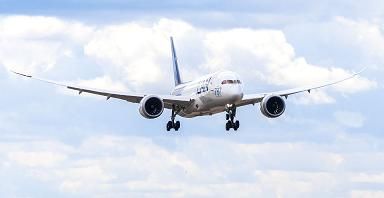Boeing lead development of new biofuel from tobacco
Boeing, South African Airways (SAA) and SkyNRG will develop sustainable aviation biofuel from a new type of tobacco plant as part of a new collaboration announced this week

Boeing, South African Airways (SAA) and SkyNRG will develop sustainable aviation biofuel from a new type of tobacco plant as part of a new collaboration announced this week.
Sustainable fuel company SkyNRG are expanding production of the Solaris hybrid plant as an energy crop, which farmers in South Africa can grow instead of traditional tobacco.
Solaris is effectively nicotine-free and is currently being tested, with biofuel production expected from both large and small firms in the next few years.
Boeing has biofuel projects running on six continents and the latest project, announced Wednesday, began in October after South African Airways approached the leading aircraft manufacturer to develop a sustainable biofuel supply chain.
The development of the new fuel will support South Africa’s environmental targets, public health goals and rural development policies.
South Africa has pledged to reduce its carbon emissions by 34 per cent by 2020 and 42 per cent by 2025, and South African Airways wants to use homegrown biofuel by 2017.
Oil from Solaris seeds will be converted into jet fuel and Boeing believes that emerging technologies will mean other parts of the plant could be used for aviation biofuel.
Ian Cruickshank, South African Airways Group’s environmental affairs specialists, said: “By using hybrid tobacco, we can leverage knowledge of tobacco growers in South Africa to grow a marketable biofuel crop without encouraging smoking. This is another way SAA and Boeing are driving development of sustainable biofuel while enhancing our region’s economic opportunity.”
The aviation industry is aiming to achieve carbon-neutral growth from 2020 and cleaner jet fuel will play a vital role in achieving the target.
Boeing’s 2014 Environment Report outlined the company’s focus on a so-called ‘drop-in’ biofuel, which can be combined with traditional fuels with no change to airplanes, engines or infrastructure.
Their target is for sustainable biofuel will make up 1 per cent of global jet fuel consumption by 2016.





